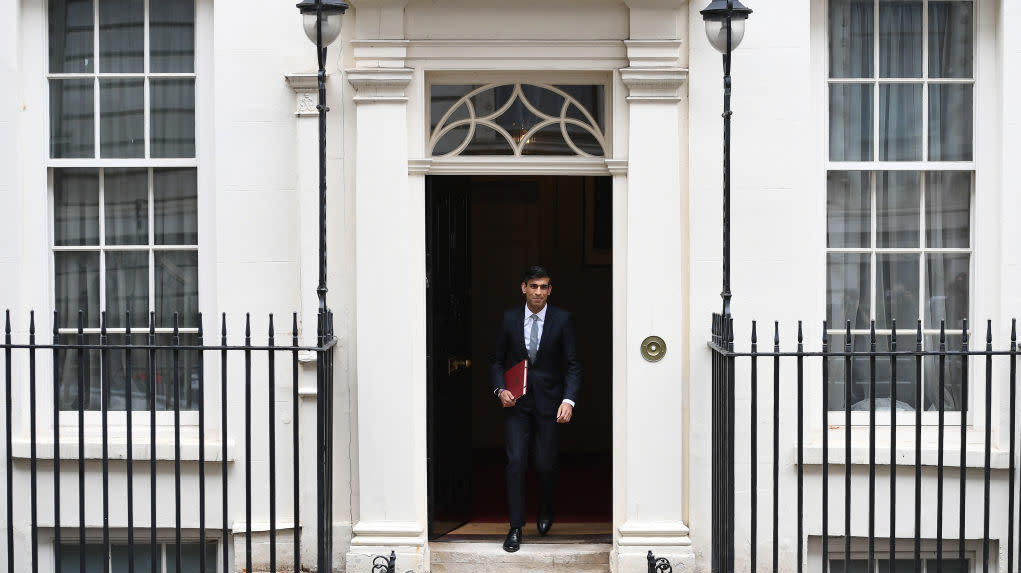50% Dining Discounts For U.K. Citizens Is A Health Risk, Critics Argue [Updated]
Update, July 27, 2020: When we first wrote about the U.K.'s "eat out to help out" initiative—a plan to offer all U.K. citizens 50% discounts on restaurant meals three days a week in an effort to kickstart the dining industry following pandemic shutdowns—we mentioned that the "biggest downside" was that the vouchers didn't cover the cost of alcoholic beverages. Now, though, some experts are pointing out another downside to the plan: the link between obesity and increased risk of death from COVID-19.
The "eat out to help out" initiative isn't limited to independent restaurants hit hardest by coronavirus. Fast food chains like Burger King and McDonald's will be offering the 50% discounts as well, and this is what appears to have some people worried. According to The Guardian, Public Health England recently found that rates of hospitalization, intensive care treatment, and even death from COVID-19 "seem to increase progressively with increasing [body mass index] above the healthy weight range." Because of the link between obesity and COVID-19 severity, and the link between fast food and obesity, some public health experts have connected these dots and concluded that the dining vouchers will put citizens at higher risk of contracting the disease. (Obesity is certainly not the only factor that might increase severity. The CDC has a laundry list of underlying conditions here, with more being added as we learn more about the virus.)
From Public Health England's perspective, the dining vouchers have come at a particularly inopportune time, because the agency is attempting to use its newfound health data to launch a nationwide anti-obesity campaign with the help of Prime Minister Boris Johnson. The PM was previously known to scoff at anti-obesity measures but has changed his mind since being hospitalized for COVID-19 himself back in April; he now supports measures such as banning junk food ads on TV before 9 p.m. and increasing access to fitness programs, believing that these actions can mitigate COVID-19 risks.
"Offering subsidies on food which is particularly associated with being less healthy completely contradicts the other message around reducing obesity," said Amelia Lake, a professor in public health nutrition who spoke with The Guardian about the dining vouchers. "On one hand we are hearing that tackling obesity is an urgent public health challenge, but on the other we are seeing actions that we know do not help us reduce obesity. There needs to be clear messaging and joined up action."
It's worth pointing out that "eat out to help out" was devised by the finance ministry as a quick stimulus to aid a struggling industry, a short-term program that gets diners spending at restaurants throughout August. Is one month really enough time for anyone's dining habits to be permanently changed for the worse by these vouchers? The plan is an economic health measure, so while it's understandable that public health agencies are upset with how it's being rolled out, this program simply wasn't designed to be a holistic solution. As the U.S. looks toward its own long road to recovery, this is just one example of the sort of interagency dust-ups that might arise as we try to fix everything that needs fixing.
Original post, July 8, 2020: When we look at the full scope of how the restaurant industry has been hit by COVID-19 restrictions, the government's PPP loans granted to these businesses only scratch the surface of how they might be supported in their efforts to recover. Phased reopening plans offer another avenue for recovery: limited capacity seating both indoors and outdoors allows restaurants to employ servers once again (for better or for worse) after months of pivoting to takeout-only setups. But over in the U.K., government officials are enacting another type of stimulus plan: restaurant discounts for diners.
According to CNBC, U.K. Chancellor of the Exchequer (aka finance minister) Rishi Sunak announced today the "eat out to help out" initiative, which will offer vouchers for citizens to receive a 50% discount (up to £10 per person, children included) when they dine out at restaurants on Mondays, Tuesdays, and Wednesdays throughout the month of August. The idea is to kickstart the economy and incentivize dining so that the restaurant and hospitality industry can receive a much-needed boost in business. The restaurants will then be able to claim the money back from the government on a weekly basis using an online system, which will reimburse the money within five days. Sunak noted that this was the first time this sort of stimulus measure had been tried in the U.K.
These aren't single-use vouchers, either; according to Metro, there's no limit on how often the discount can be claimed on eligible days of the week throughout August. The biggest downside? The vouchers can't be used to buy alcoholic beverages.
